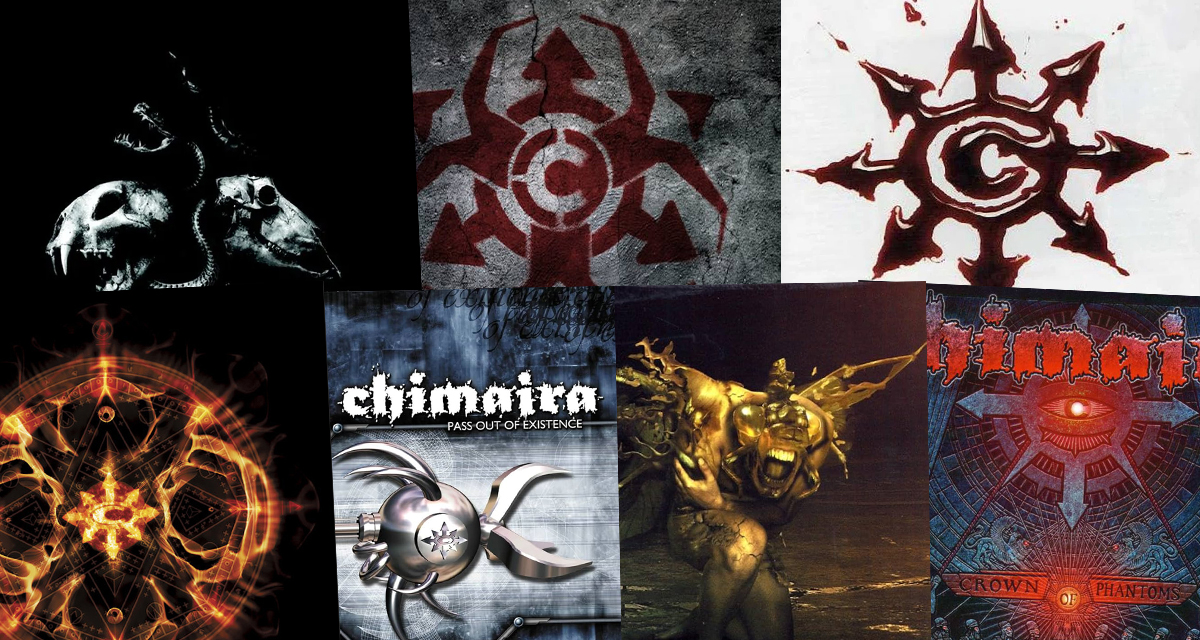Chimaira is a metal band from Cleveland founded by Mark Hunter, a vocalist and lyricist who never met a first-draft rhyme he didn’t run with (e.g., “On my last nerve / I’ll get what I deserve” and “Enter the madness / Beautiful sadness”). The band’s sound, generally speaking, is a mix of groove metal and metalcore, which is to say: roughly the middle ground between Lamb of God and Killswitch Engage. Chimaira’s membership was noted for being in flux for much of its existence, but the classic lineup consisted of Hunter guitarists Rob Arnold and Matt DeVries, bassist Jim LaMarca, keyboardist Chris Spicuzza, and drummer Andols Herrick (who left twice during the band’s run). From 2001 to 2013, the band released seven studio albums of varying quality before breaking up in 2014. They’re reunited twice since then—for a single show in 2017, and two shows in 2023—so the band’s active kinda like how your father went out for cigarettes and never came back but calls once every few years just to make sure you’re alive. The band’s life isn’t totally over, so let’s shout some words about them to those who never listened.
7. The Age of Hell (2011)
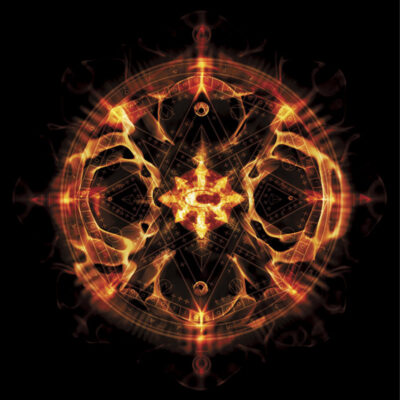 Chimaira’s sixth album is a waste, both of their talent and your time. The off-brand metalcore songs have the creativity of beige wallpaper and the depth of a two-dimensional object. Hell is listening to this insipid record, and life it too short to bother replaying a single track. Perhaps it’s because everyone not named Arnold or Hunter left or was kicked out before writing and recording. As such, the trio—Hunter, Arnold, and longtime producer Ben Schigel on drums—play with the enthusiasm of a hungover McDonald’s cashier. Interestingly, Hunter has a moment of shocking self-awareness when he asks, “Where did my passion go?” Where, indeed.
Chimaira’s sixth album is a waste, both of their talent and your time. The off-brand metalcore songs have the creativity of beige wallpaper and the depth of a two-dimensional object. Hell is listening to this insipid record, and life it too short to bother replaying a single track. Perhaps it’s because everyone not named Arnold or Hunter left or was kicked out before writing and recording. As such, the trio—Hunter, Arnold, and longtime producer Ben Schigel on drums—play with the enthusiasm of a hungover McDonald’s cashier. Interestingly, Hunter has a moment of shocking self-awareness when he asks, “Where did my passion go?” Where, indeed.
Play it again: “Born in Blood,” maybe…?
Skip it: The band certainly did for both reunions, a hint that’s got the subtlety of a neon sign
6. Pass Out of Existence (2001)
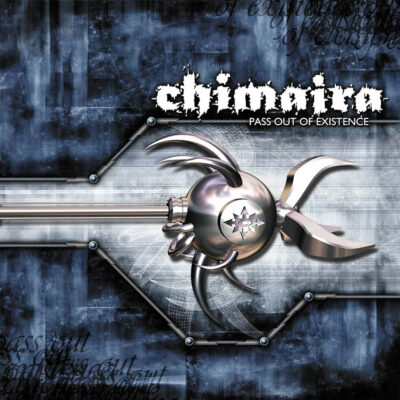 Much like trucker hats and asking Regis to phone a friend, Chimaira’s debut is a relic of the early 2000s: thin production, wet-ping snares, nu metal riffing, and needless electronic soundscapes. Oh, and the lyrics read like the diary of an angsty suburban teenager (“You don’t know what it’s like to be dead inside”). Hunter, meanwhile tries out several vocal styles including too-close-to-the-mic talk-singing, whiny yet oddly sensuous singing, and awkward kinda-rapping. None work. There are flashes of the more interesting band they’d become—derived almost exclusively from Herrick’s excellent playing—but “Pass Out of Existence” is mostly a band trying on baggy jeans and a wallet chain because all the kids at school are wearing them. Sure, this is a mess relative to “Hell” (and the rest of their output), but at least there’s some passion here.
Much like trucker hats and asking Regis to phone a friend, Chimaira’s debut is a relic of the early 2000s: thin production, wet-ping snares, nu metal riffing, and needless electronic soundscapes. Oh, and the lyrics read like the diary of an angsty suburban teenager (“You don’t know what it’s like to be dead inside”). Hunter, meanwhile tries out several vocal styles including too-close-to-the-mic talk-singing, whiny yet oddly sensuous singing, and awkward kinda-rapping. None work. There are flashes of the more interesting band they’d become—derived almost exclusively from Herrick’s excellent playing—but “Pass Out of Existence” is mostly a band trying on baggy jeans and a wallet chain because all the kids at school are wearing them. Sure, this is a mess relative to “Hell” (and the rest of their output), but at least there’s some passion here.
Play it again: “Sp Lit” (get it?), “Rizzo,” and “Forced Life”
Skip it: “Lumps,” “Taste My…,” and “Jade”
5. Crown of Phantoms (2013)
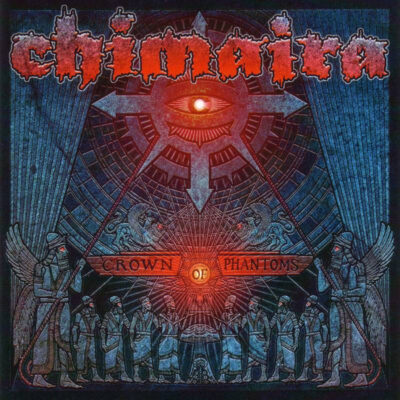 Chimaira’s seventh (and final?) album finds them bouncing back from their studio nadir two years earlier. Because everyone besides Hunter left, “Crown of Phantoms” is essentially a solo record. Still, he recruited some real talent—notably lead guitarist Emil Werstler and drummer Austin D’Amond, who steal the show—that injected new life into a comatose enterprise. Correctly leaning into the groove metal half of their sound, there’s flashy playing and slick riffing throughout. Given the mass exodus prior to this record and the band breaking up a year later, however, it’s hard not to see references in Hunter’s lyrics to betrayal and cowardice as being directed at former bandmates, as well as multiple references to putting a gun to a head as foreshadowing the band’s demise. If “Crown” remains Chimaira’s last record, they at least ended on a decently-high note.
Chimaira’s seventh (and final?) album finds them bouncing back from their studio nadir two years earlier. Because everyone besides Hunter left, “Crown of Phantoms” is essentially a solo record. Still, he recruited some real talent—notably lead guitarist Emil Werstler and drummer Austin D’Amond, who steal the show—that injected new life into a comatose enterprise. Correctly leaning into the groove metal half of their sound, there’s flashy playing and slick riffing throughout. Given the mass exodus prior to this record and the band breaking up a year later, however, it’s hard not to see references in Hunter’s lyrics to betrayal and cowardice as being directed at former bandmates, as well as multiple references to putting a gun to a head as foreshadowing the band’s demise. If “Crown” remains Chimaira’s last record, they at least ended on a decently-high note.
Play it again: “No Mercy” and “Spineless”
Skip it: “I Despise” and “The Transmigration”
4. Resurrection (2007)
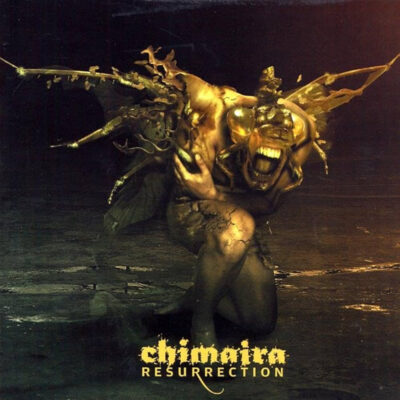 This is for Chimaira fans who liked their eponymous album (see #1) but wanted a streamlined version. “Resurrection,” then, consists of good-not-great material that’s more or less well-paced, save for a momentum-killing, overstuffed thing called “Six.” Herrick’s superb drumming is the high point: he plays like he’s justifying his initial return to the band, (re)cementing the classic lineup. Hunter’s pedestrian diary scribbles, conversely, are again the main flaw, even when he attempts social commentary (e.g., “Day and night feed off humanity / Scraping by on the remnants of life / No cure, no hope, no way to change / Paper bags filled with liquid love”). Notably, Hunter references Nietzsche and Herbert Spencer, suggesting that he (temporarily?) closed his diary and opened a book. That’s progress.
This is for Chimaira fans who liked their eponymous album (see #1) but wanted a streamlined version. “Resurrection,” then, consists of good-not-great material that’s more or less well-paced, save for a momentum-killing, overstuffed thing called “Six.” Herrick’s superb drumming is the high point: he plays like he’s justifying his initial return to the band, (re)cementing the classic lineup. Hunter’s pedestrian diary scribbles, conversely, are again the main flaw, even when he attempts social commentary (e.g., “Day and night feed off humanity / Scraping by on the remnants of life / No cure, no hope, no way to change / Paper bags filled with liquid love”). Notably, Hunter references Nietzsche and Herbert Spencer, suggesting that he (temporarily?) closed his diary and opened a book. That’s progress.
Play it again: the title track, “End It All,” and “Empire”
Skip it: “Six” and “Killing the Beast”
3. The Infection (2009)
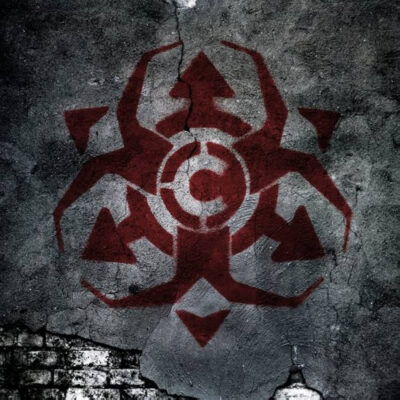 Their fifth record is the one for Pantera fans, because Chimaira go all-in on mid-tempo groove metal. “The Infection” lacks the southern fried boogie and the arena hooks of Pantera, but it’s
Their fifth record is the one for Pantera fans, because Chimaira go all-in on mid-tempo groove metal. “The Infection” lacks the southern fried boogie and the arena hooks of Pantera, but it’s
nonetheless a fine album and easily Chimaira’s heaviest. Hunter musta noticed, because this is his best vocal performance, with his angsty antagonism turning feral and unhinged. (Hunter’s still relying on mediocre writing, natch: “Running away from the pain / The evil approaches, no one to save me.”) Meanwhile, the band trades out guitar solos for electronics, but thankfully they’re done in a tastefully restrained manner. The records after “The Infection” trended downward in quality—possibly because it’s the last one featuring the classic lineup—so maybe it shoulda been called “The Demarcation.”
Play it again: “The Venom Inside” and “Secrets of the Dead”
Skip it: The plodding “Impending Doom” and impressively ambitious but unnecessary closer “The Heart of it All”
2. The Impossibility of Reason (2003)
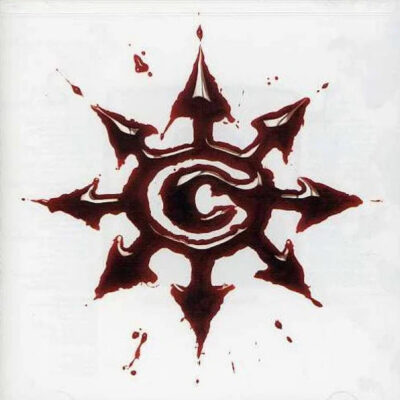 For their second album, and first with the classic lineup, the sextet decided to jettison all the poor decisions of “Pass Out” and instead distill their songwriting into a singular vision. The result is a cohesive and well-written set of songs. Who’da thought? After the experimentation of “Pass Out,” Hunter wisely picked a single vocal style: his well-known scrape-screech, which answers the question, “What would it sound like if you ran steel wool over your larynx?” Unsurprisingly, the record’s weakness is Hunter’s teenager whining like “Maybe I’m not who you are / Maybe I want to be myself.” Yet, aside from the closing track, “The Impossibility of Reason” is so good that you can (mostly) ignore it.
For their second album, and first with the classic lineup, the sextet decided to jettison all the poor decisions of “Pass Out” and instead distill their songwriting into a singular vision. The result is a cohesive and well-written set of songs. Who’da thought? After the experimentation of “Pass Out,” Hunter wisely picked a single vocal style: his well-known scrape-screech, which answers the question, “What would it sound like if you ran steel wool over your larynx?” Unsurprisingly, the record’s weakness is Hunter’s teenager whining like “Maybe I’m not who you are / Maybe I want to be myself.” Yet, aside from the closing track, “The Impossibility of Reason” is so good that you can (mostly) ignore it.
Play it again: the ripping three-song run of “Power Trip” > “Down Again” > “Pure Hatred”
Skip it: “Implements of Destruction,” which is an impressive display of songwriting, ambition, and musicianship, but the album is better without it
1. Self-Titled (2005)
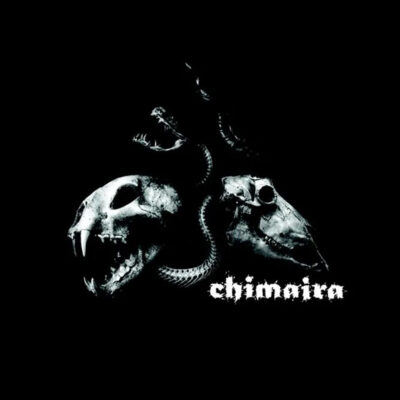 Chimaira’s third full-length feels like a reaction to their previous two—specifically, the melodic and electronic elements. Here, both are minimized faster than a porn window when your roommate turns the doorknob. This is the band’s thrashiest and grooviest and proggiest record, full of satisfying riffage and excellent musicianship. (It should come as no surprise that they covered “Disposable Heroes” during these sessions; it appears on the special edition.) Part of the album’s greatness is derived from Kevin Talley, a superb and inventive drummer who’s passed through more bands than the clap. Sadly, that means this is the only time he’d play on a Chimaira release. On the plus side, however, he was here for this monster’s peak and one of the best metal albums of 2005. So there’s that.
Chimaira’s third full-length feels like a reaction to their previous two—specifically, the melodic and electronic elements. Here, both are minimized faster than a porn window when your roommate turns the doorknob. This is the band’s thrashiest and grooviest and proggiest record, full of satisfying riffage and excellent musicianship. (It should come as no surprise that they covered “Disposable Heroes” during these sessions; it appears on the special edition.) Part of the album’s greatness is derived from Kevin Talley, a superb and inventive drummer who’s passed through more bands than the clap. Sadly, that means this is the only time he’d play on a Chimaira release. On the plus side, however, he was here for this monster’s peak and one of the best metal albums of 2005. So there’s that.
Play it again: “Nothing Remains” and “Comatose”
Skip it: the final 70 seconds of “Pray for All,” which is jarringly ill-fitting relative to the rest of the song and album

